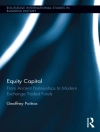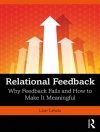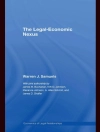The phenomenon of collusive international agreements (cartels) became widespread in the 1930s. At that time, attempts to control production and prices were mainly the prerogative of multinational firms operating in the developing (then colonized) world. The "modern era" of cartels began in the 1960s, when the governments of developing nations began to participate in commodity agreements to achieve increases and stability in the world price of their commodities. This book is principally concerned with the modern era of cartels. It goes beyond the singular example of petroleum and OPEC to examine the structure of international commodity markets for bauxite (aluminum ore), cocoa, coffee, rubber, sugar, and tin, and the conditions that led to the formation of cartels in those markets during the latter half of the twentieth century. Specifically, the work focuses on four major aspects of international commodity markets: patterns of production and consumption; economic dislocations to both importers and exporters due to price fluctuations; the formation of cartels as a solution to weak and variable commodity prices; and the likely effects arising from tightening raw material markets. The book concludes with a detailed examination of what the future holds for each of the cartels, and what role technology, 24-hour market trading, and decreasing foreign direct investment in producing countries will have on the management of commodity markets.
Mark S. LeClair
International Commodity Markets and the Role of Cartels [EPUB ebook]
International Commodity Markets and the Role of Cartels [EPUB ebook]
Buy this ebook and get 1 more FREE!
Language English ● Format EPUB ● Pages 200 ● ISBN 9781315500874 ● Publisher Taylor and Francis ● Published 2016 ● Downloadable 3 times ● Currency EUR ● ID 4929472 ● Copy protection Adobe DRM
Requires a DRM capable ebook reader












